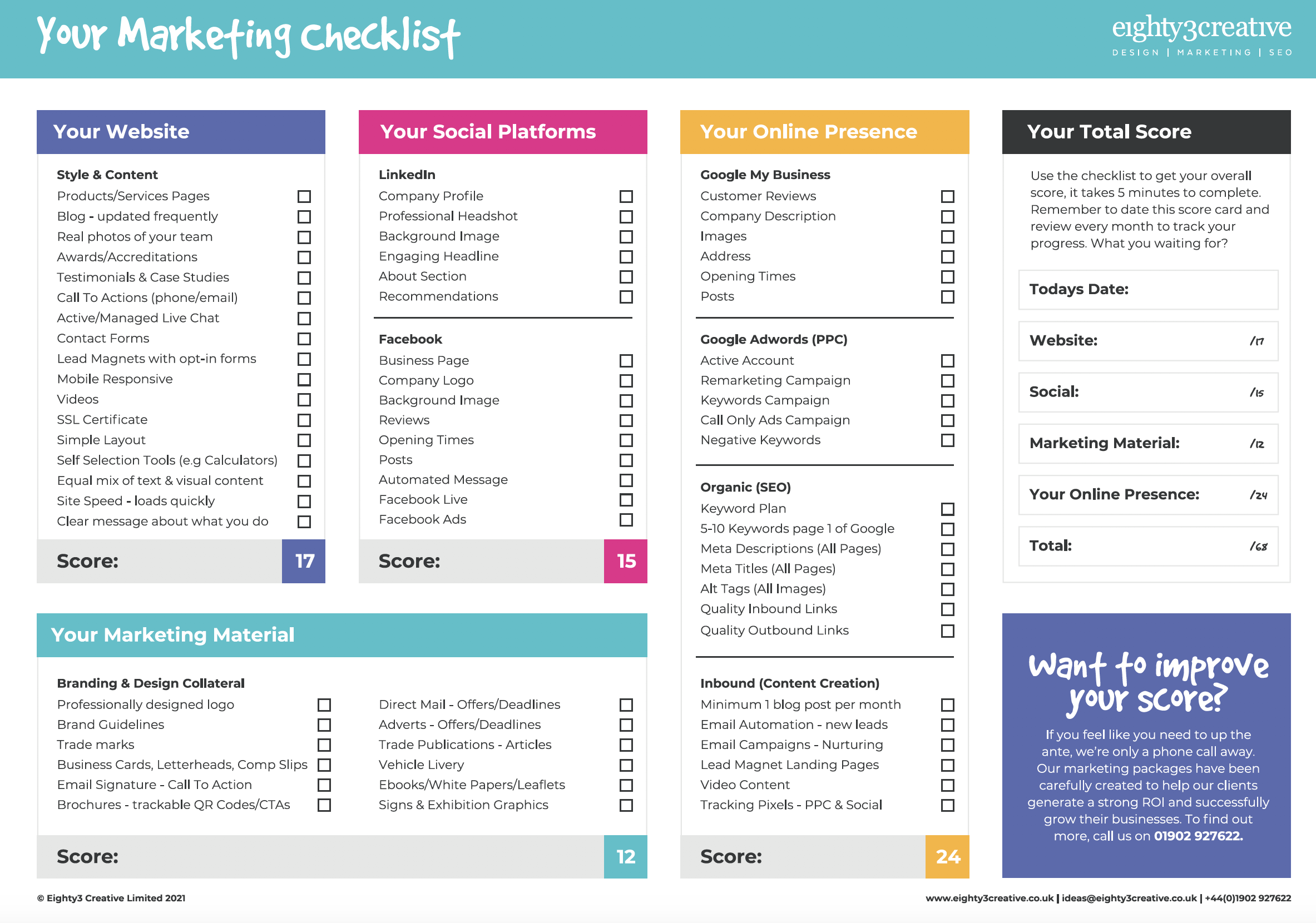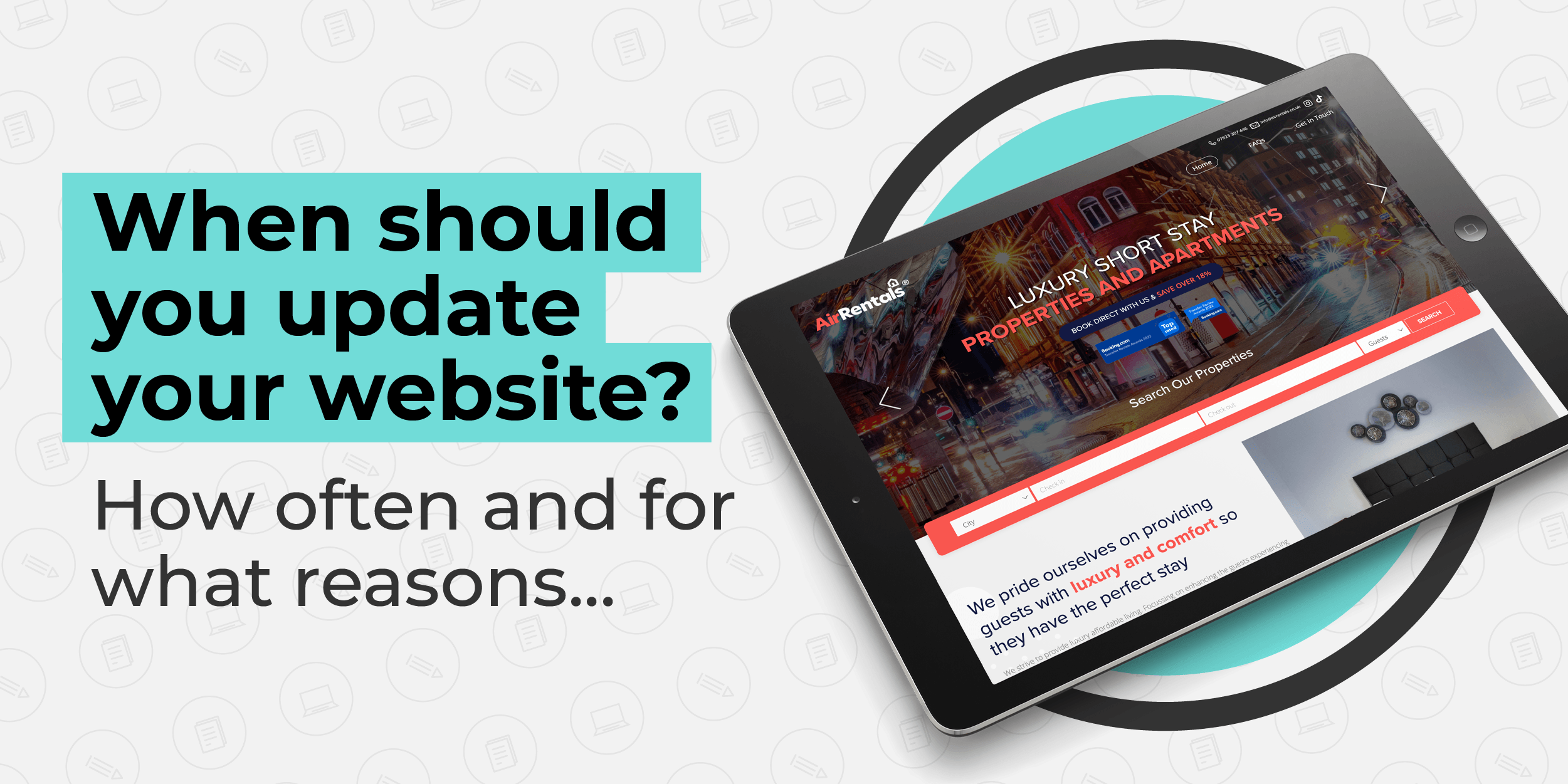- 01.07.22
- |
- Web & Digital
When should you update your website?
-
Article by
Amie Whale

Marketing Checklist Download
Score your marketing activity & plan for 2023
Plus, sign up to our newsletter to keep us up-to-date
We would love to work with you. view services

